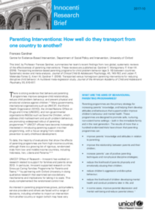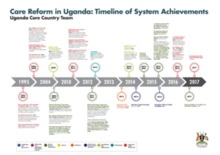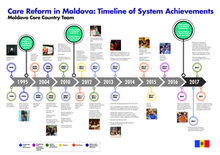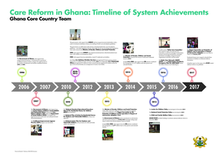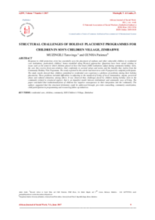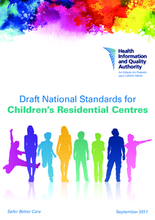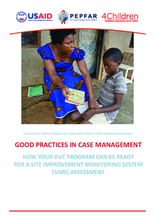Displaying 71 - 80 of 372
This brief summarizes recent findings from two global, systematic reviews on the effectiveness of parenting interventions.
This infographic provides a historical timeline of the alternative care reform process in Uganda, marking key achievements in the establishment of policies, guidelines, procedures, and programs to improve the quality of care and protection for children without adequate family care.
This infographic provides a historical timeline of the alternative care reform process in Moldova, marking key achievements in the establishment of policies, guidelines, procedures, and programs to improve the quality of care and protection for children without adequate family care.
This infographic provides a historical timeline of the alternative care reform process in Ghana, marking key achievements in the establishment of policies, guidelines, procedures, and programs to improve the quality of care and protection for children without adequate family care.
This study observed the challenges experienced by children living in SOS Children's Village Bindura, Zimbabwe during a Community Holiday Visit Programme.
This paper describes and analyzes the implementation of trauma and evidence-informed interventions in three federally-funded statewide demonstration sites in different regional contexts throughout the United States.
Ireland's Health Information and Standards Directorate has launched a public consultation on the Draft National Standards on Children's Residential Care. Once finalized, the Standards will provide a framework for the ongoing development of child-centred and effective services for children living in residential care centres. This document contains the preceding Draft Standards, eligible for feedback through 02 November 2017.
This guide has been written in order to assist OVC program personnel to understand key terms and concepts used in the Site Improvement Monitoring System (SIMS) Community Tool, specifically the section on case management services for OVC.
This article describes the findings of a four-year study with a cohort of children in out-of-home care in New South Wales and their experiences with the criminal justice system.
The 24 chapters of this book contain research examining the institutionalization of children, child abuse and neglect in residential care, and interventions preventing and responding to violence against children living in out-of-home care settings around the world.

